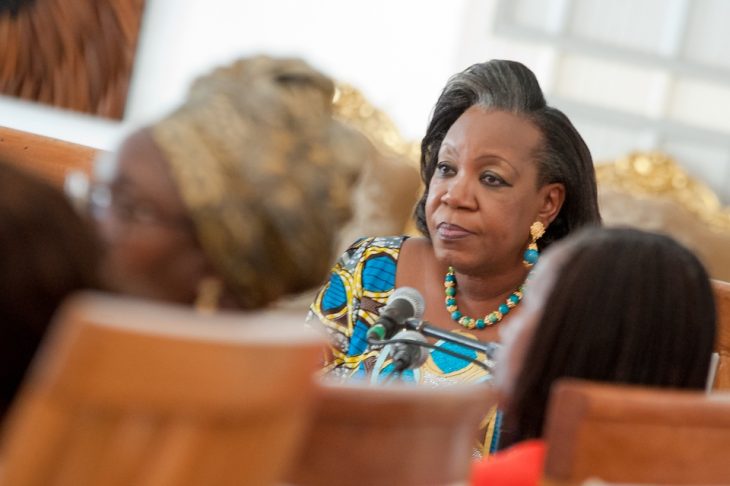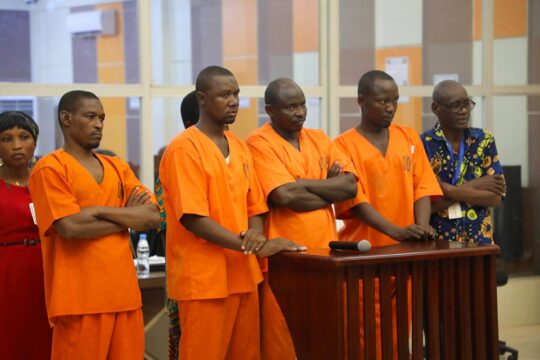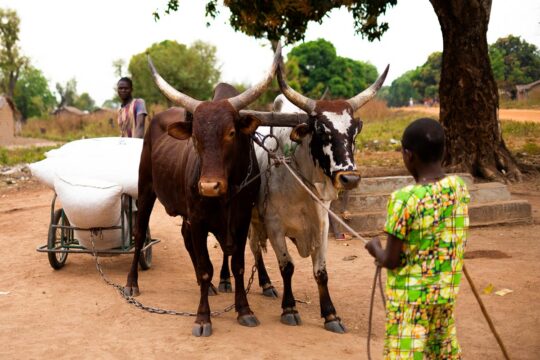The Central African Republic (CAR) has taken a new step towards setting up a Special Criminal Court to try the most serious crimes committed in the country in the last ten years. On June 3, President Catherine Samba-Panza signed onto the statute book a law on the creation, organization and operation of this Court.
“Is hereby created within the Central African judicial system a national criminal jurisdiction to be known as Special Criminal Court,” says organic law No. 15.003, a 23-page document with seven chapters.
The Court is to be based in the capital Bangui, with possible transfer of hearings elsewhere according to the interests of justice. Its mandate is to investigate, prosecute and bring to trial the most serious violations of human rights and international humanitarian law committed on CAR territory since January 1, 2003, notably crimes of genocide, crimes against humanity and war crimes, which will be the focus of its investigations.
“The crimes that fall under the Special Criminal Court’s jurisdiction are imprescriptible (Editor: i.e. cannot be taken away, e.g. by time limits),” says Article 3 of the new law. “The Court’s jurisdiction covers all national territory as well as joint acts and acts of complicity committed on the territory of foreign States with which the CAR has judicial cooperation agreements.” The Court will be headed by a Central African President elected by a college of national judges in an inaugural session, which is also to approve the Rules of Procedure and Evidence.
International Judges
The Special Criminal Court, which is empowered to pronounce sentences of up to life in jail, will also have international judges to be nominated by the UN peacekeeping force in the CAR (MINUSCA).
The Court will have four Chambers: Investigating Chamber; Special Prosecutions Chamber; Trial Chamber; and Appeals Chamber.
For investigations, the Court will be supported by a nationally mandated unit of the Special Police, which will be attached to the Court. For prosecution, it will have a special international prosecutor seconded by a national deputy-prosecutor.
Under Article 20 of the organic law, “the national or international members (of the Court) must be of good morals, with demonstrated evidence of impartiality, and possess the professional qualifications necessary for appointment to the highest judicial functions”.
As for the Court’s budget, the law provides that it be covered by the international community, notably through voluntary contributions, including from MINUSCA.
Protections for Judges and Staff
The international magistrates, judges and staff of the Court as well as legitimate members of their family are to enjoy the privileges, immunities, exemptions and facilities accorded to diplomatic personnel under the 1961 Vienna Convention on diplomatic relations.
National magistrates and judges and the national staff of the Court are to enjoy the immunity of the jurisdiction with regard to their spoken and written words and acts undertaken by them in their official capacity. This immunity remains valid even after they have left their functions at the Special Criminal Court.
The law on the Special Court also provides for it to cooperate with the International Criminal Court (ICC), which has already opened an investigation on the situation in the CAR since 2012. This is the first time that a Special Court has been created in a situation where the ICC is also active.
The new Court has a mandate for 5 years, effective from when it is actually set up and renewable if necessary. It will be automatically dissolved as soon as it has dealt with all the cases that are referred to it.
The government submitted a draft bill on the Special Court to parliament on February 6, 2015. It was passed on April 22 by a large majority.





